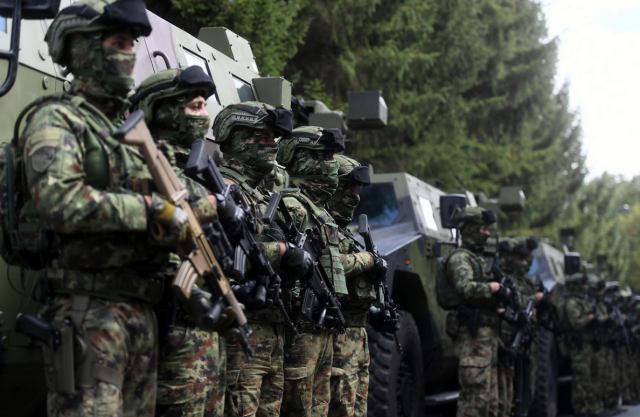ITALY, May 31st, 2023. Tensions and violence have once again escalated between Serbia and the breakaway region o Kosovo, leading Serbian President Aleksandar Vucic to place the country’s army on full combat alert and order her units to move closer to the border with Kosovo.
Serbian Tanjug News reported on the situation on May 26th after the government of Kosovo used riot police to forcibly seize municipal buildings that were being picketed by members of the ethnic Serb majority living in northwest Kosovo, an area for which Serbia uses its provincial name, Kosovo-Metohija.
The buildings were seized in order to install ethnic Albanian mayors who were chosen during an election that the native Serbs boycotted. 52 Serb protestors were injured during clashes with police, while 30 members of a NATO peacekeeping force known as KFOR, who appear to have potentially been turned against the protesters, were also injured.
This use of what seems like brute force by Kosovo leader Albin Kurti drew rare backlash from the semi-recognized state’s largest backers, namely the US, and Europe’s largest economies.
“The United States strongly condemns the actions by the Government of Kosovo to access municipal buildings in the north of Kosovo by force, actions it took against the advice of the United States and Kosovo’s European partners,” the State Department said in an official statement.
“These actions have sharply and unnecessarily escalated tensions, undermining our efforts to help normalize relations between Kosovo and Serbia and will have consequences for our bilateral relations with Kosovo”.
France, Italy, and Germany responded in kind.
“We condemn Kosovo’s decision to force access to municipal buildings in northern Kosovo despite our call for restraint. We call on Kosovo’s authorities to immediately step back and de-escalate, and to closely coordinate with EULEX and KFOR”.
If you think the stories you’ve just read were worth a few dollars, consider donating here to our modest $500-a-year administration costs.




